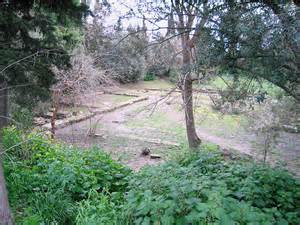Plato's Academy
Plato's Academy was not a school in the modern sense but, rather, a gathering place for the serious and curious thinkers of the day. The Academy wasn't even a building but, rather, an outdoor gathering spot near a religious shrine (to Athena), dedicated to a legendary Athenian hero named Akademos, as one version has it, or named after an important Athenian named Academos, as another version has it. Statues dotted the grove of olive trees, and Plato and others gathered in this natural setting to discuss all manner of things. Founded about 387 B.C., the Academy survived a number of attempts to shut it down, most notably by Sulla in the 9th Century B.C., and was finally shut down by Emperor Justinian in A.D. 529.
The Academy had not set membership division, like the teachers and pupils model of so many institutions of learning today. Tradition holds that only men attended the Academy, although some sources list a few women among the membership. Historians differ on who was in charge of the Academy during its years of heightened activity. Plato is the person most associated with the Academy, but that is largely because of his name and influence. Some sources say that Plato himself founded the Academy; others say that he was its head for a time. One of the most notable sources, Cicero, describes an Old Academy and a New Academy, with a virtual lineage of "scholarchs," or people in charge, stretching for hundreds of years. Another of the most famous thinkers to have attended the Academy was Aristotle. He did not succeed Plato as head of the Academy (that honor going to Speusippus) and later founded his own institution, the Lyceum. When Justinian carried out his Byzantine doctrine of expunging pagan sites throughout the empire, he ordered the Academy closed. The remaining "Academics" escaped with some of their most prized writings and memories to Middle Eastern lands, where they enjoyed protection for a time. The idea of the Academy carried on, however, and spread throughout Western and Eastern lands. Most educational institutions of today can trace their roots back to Plato's collection of thinkers gathered in the olive trees. |
|
Social Studies for Kids
copyright 2002–2026
David White



 The Academy was outside the walls of Athens, Greece's most famous city-state, and
The Academy was outside the walls of Athens, Greece's most famous city-state, and 
